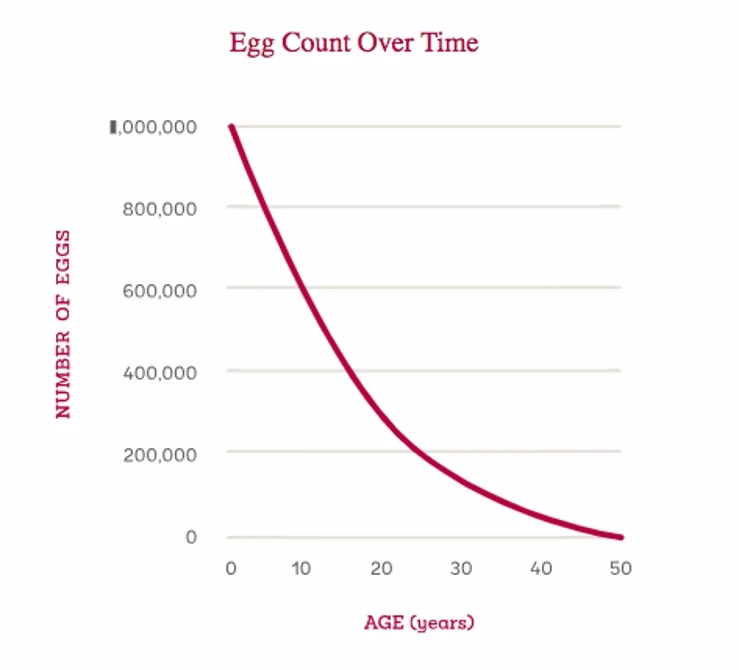If you are thinking about freezing your eggs, you are not alone. With career growth, onsite jobs, delayed marriages, travel plans, or any other plans, many women today are exploring egg-freezing options to preserve their fertility. But when is the best time to halt your biological clock? Does age really matter to take this step?
Let’s get answered!
How Does Age Affect Egg Freezing?
First and foremost, you must understand that as you get older, your egg reserve decreases. This is not just about the number of eggs but also their quality. This means fewer eggs are available for freezing. But why does this happen?
Females are born with a finite number of eggs in their ovaries, typically around 1 to 2 million. Unlike men, who produce sperm continuously, women do not generate new eggs during their lifetime. From birth onwards, the number and egg quality continually decreases.
As you age, your ovaries' ability to function effectively decreases. This includes a decline in the ovaries' response to the hormones responsible for stimulating egg release (follicle-stimulating and luteinizing hormones). The reduction in ovarian function means fewer eggs are matured and released over time.
Also, older eggs have a higher risk of genetic abnormalities, such as aneuploidy, which is the presence of an abnormal number of chromosomes. This increases the risk of conditions like Down syndrome in baby and can also lead to a higher chance of miscarriage.
Now, the question is when one should go for egg freezing.
When considering egg freezing, sooner rather than later is generally the mantra. The younger you are, the better the chances of freezing a higher quantity of good-quality eggs. Because younger eggs are more likely to withstand the freezing and thawing process which is a critical aspect of egg freezing. Thawing, or de-freezing, requires eggs to remain viable for fertilization, a process how these eggs are utilised by fusing with partner sperm to make a viable embryo.
Again, you might be wondering how many eggs can be frozen and at what age. While exact numbers can vary, the fertility specialists at the best IVF centre in Delhi recommend that the best chances lie when eggs are frozen before the age of 30. This isn’t a hard stop, but it’s a guideline based on the natural decline in fertility. Let’s understand it with the following table:
Age
Recommended Number of Eggs to Freeze for at least 1 child
Probability of Live Birth After IVF
<35
9 - 12
60 - 70%
35-37
14 - 16
60 - 70%
38-42
35 - 45
60 - 70%
>42
50+
60 - 70%
Note: This table is for general information. The exact number of eggs required for freezing can vary based on your individual health conditions.
For example, if you are less than 35, you need to freeze around 12 eggs with the best egg quality to boost your chances of pregnancy. There are several online calculators available that can help you calculate the number of eggs required for freezing.
Additional Consideration for Future Pregnancy
While egg freezing is an important step toward fertility preservation, it doesn’t ensure future pregnancy. Several other factors come into play for pregnancy when using frozen eggs.
Semen Parameters: The quality of your partner’s semen is an important factor when egg utilisation is to be done. It’s a critical component that affects fertilization and, ultimately, pregnancy outcomes.
Uterine Health: The condition of the uterine lining at the time of embryo implantation is another vital factor. Conditions like fibroids or infections can develop over time, potentially impacting your ability to conceive.
Take Away!
Egg freezing is a personal and significant decision influenced by numerous factors, including age, future fertility considerations, and reproductive technology. While the sooner-the-better approach is advisable for preserving fertility, it is better to consult with a fertility specialist like Dr Rhythm Gupta to explore this option as a back up insurance for conceiving at will at an advanced age smoothly.


